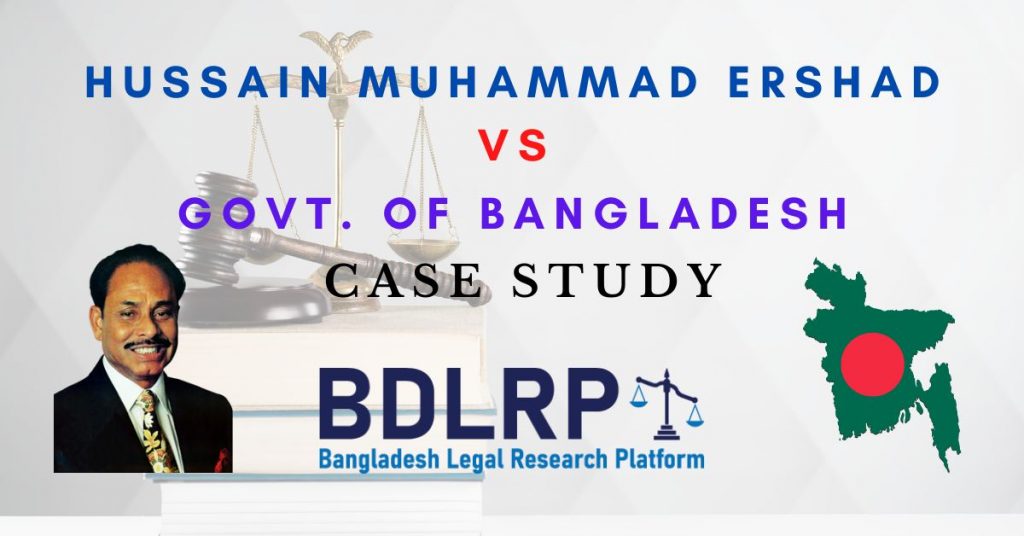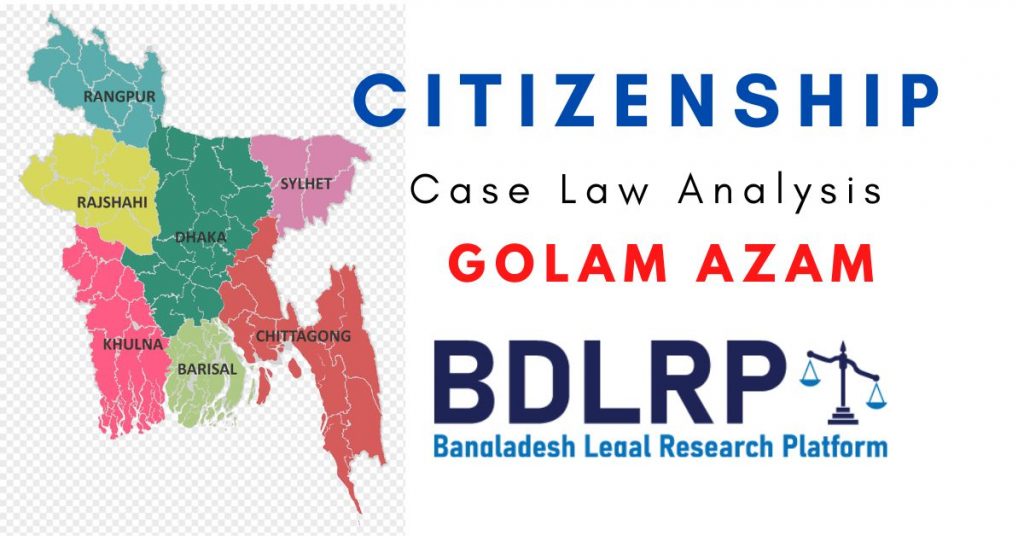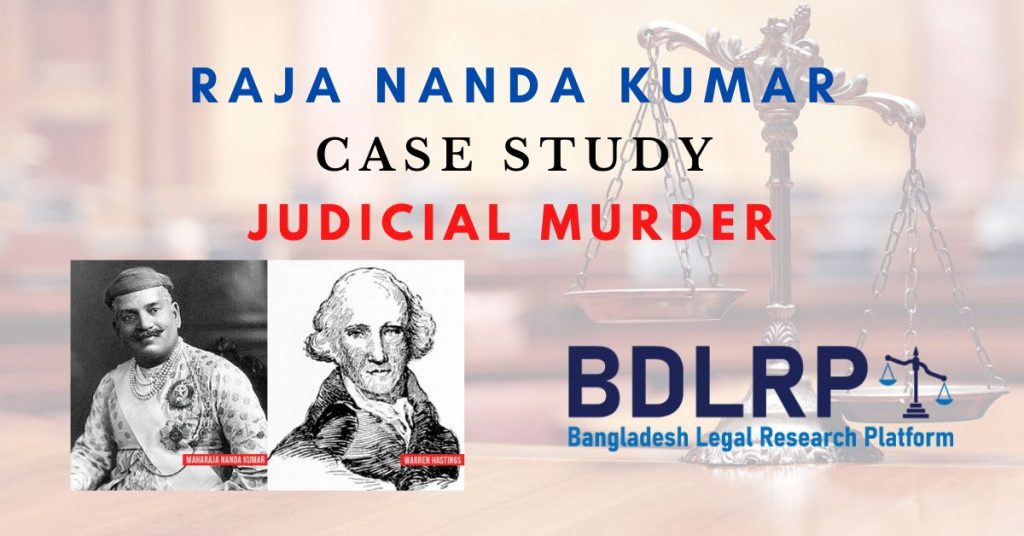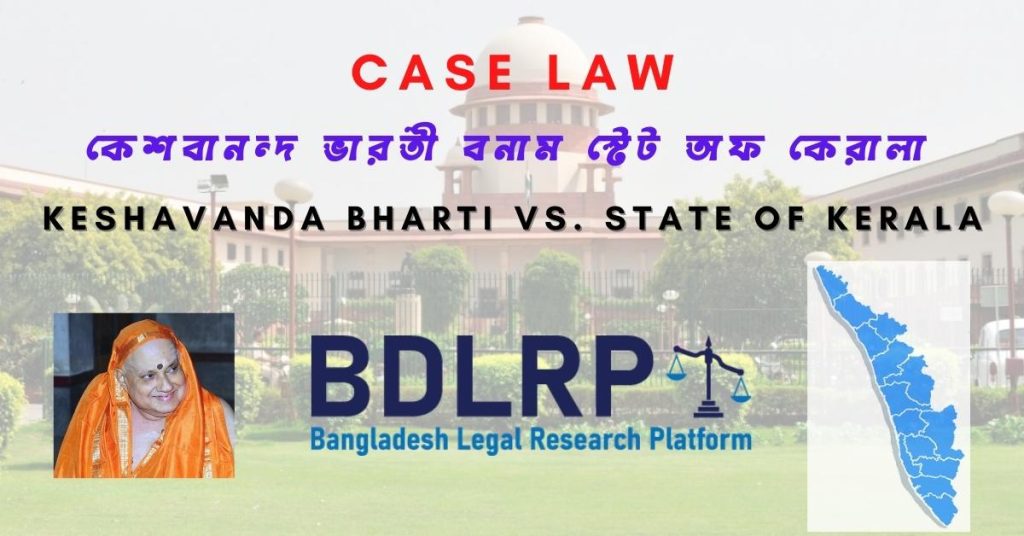Bench: Latifur Rahaman CJ; Bimalendu Bikash Roy Chowdhury J; AM Mahmudur Rahman J; Mahmudul Amin Chowdhury J; Kazi Ebadul Hoque J.
Advocates Appeared:
Barrister Rafique-Ul-Huq, Senior Advocate (Khandker Mahbub Hossain, Senior Advocate with him) instructed by Mvi. Md. Wahidullah, Advocate-on-Record – For the Appellant.
Mahbubey Alam, Additional Attorney-General instructed by AKM Shahidul Huq, Advocate on-Record – For the Respondent No. 1
Not Represented Respondent Nos. 2-4.
Date of Judgment: August 16, 2000
Facts:
An order issued by the Ministry of Home Affairs of the Peopled Republic of Bangladesh stopped the appellant from going overseas, and his passport was impounded. He filed a writ petition against the order on the grounds of violation of Article 31, 32 & 36 of the Constitution, Article 13 of the UDHR, and natural justice. The High Court Division dismissed the writ petition on its incompetency but allowed leave to appeal concerning the constitutional questions related to it.
Issues:
(i) Was the writ petition competent?
(ii) Whether the appellant was deprived of his constitutional right & natural justice.
(iii) Whether the seizure of passport had been lawfully made.
Arguments of the Appellant:
Regarding its maintainability, the learned Advocate argued that the writ petition was filed under Article 102(1) & (2)(a)(i) read with Article 44 of the Constitution for enforcement of fundamental rights. The whole purpose of stopping the appellant from leaving Bangladesh was violative of Article 36, and the State also neglected its international obligation. Alternative remedy could not be availed of under Article 10 as the impugned order was at served upon the appellant. Moreover, the passport was taken away without providing a statement of reasons per Article 7(4) and giving any opportunity of personal hearing.
Arguments of the Respondent:
The learned Additional Attorney General submitted that the passport was confiscated in exercise of the power under Article 7(2) of the Bangladesh Passport Order, 1973 and did not flout any constitutional provision. The authority did not require mentioning any reason for a passport impounded under Article 7(2)(c). He further argued that the writ petition was incompetent without availing alternative remedy accessible under Article 10 of the Passport Order.
Decision:
The appeal was allowed, overruling the High Court Division’s judgment & order, and the Court directed the respondents to return the passport to the appellant promptly.
Reasoning:
The Court could not find any ground for impounding the passport as contemplated in Article 7(2)(c). It held that the appellant having not been supplied with the copy of order was violative of Article 7(4) of the Passport Order and for such, the order could not be held to be lawfully made. The Court also opined that a writ petition under Article 102(1) of the Constitution for effectuation of fundamental rights, not availing of alternative remedy before any other forum, is quite competent.
Comments:
Under a constitutional system, every power is coupled with specific responsibilities. The power is required to be exercised not merely because the power subsists, but in compliance with the due process of law.
Author: Shilajit Kumar Roy
Law Discipline,
Khulna University.





Comments are closed.